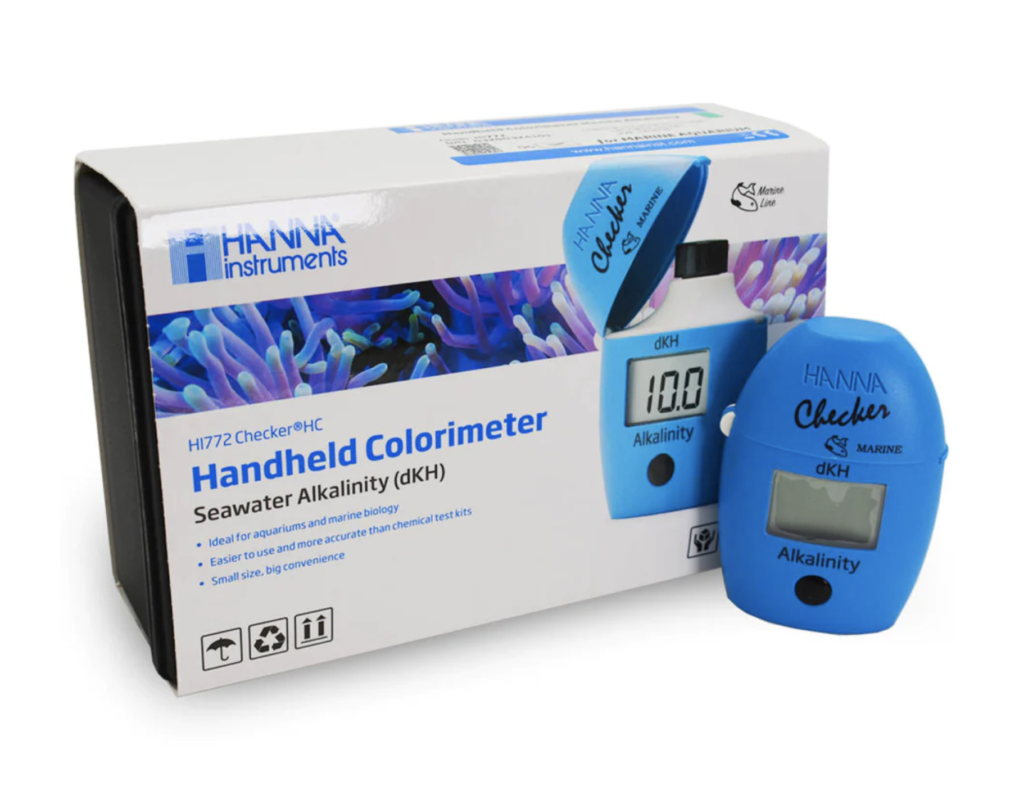
Alkalinity is an important water parameter to consider when maintaining a reef tank. It refers to the ability of water to resist changes in pH caused by acids. In a reef tank, maintaining stable alkalinity levels is crucial for the health and growth of corals, as well as the overall stability of the ecosystem.
The alkalinity of a reef tank is primarily influenced by the concentration of bicarbonate ions (HCO3-) and carbonate ions (CO32-) in the water. These ions play a vital role in the formation and maintenance of coral skeletons, as corals utilize them to build their calcium carbonate (CaCO3) structures.
There are a few key reasons why alkalinity is important in a reef tank:
- pH stability: Alkalinity acts as a buffer, helping to stabilize pH levels in the tank. Fluctuations in pH can be detrimental to corals and other organisms, causing stress and even death.
- Calcium carbonate availability: Corals and other reef-building organisms require a steady supply of carbonate ions to build and maintain their skeletal structures. Insufficient alkalinity can lead to slowed growth or weakened skeletal structures.
- Nutrient regulation: Alkalinity levels affect the availability of essential nutrients, such as calcium and magnesium, which are important for coral health. Imbalances in alkalinity can hinder the uptake and utilization of these nutrients.
Testing ALK in a Reef Tank
To measure alkalinity in a reef tank, hobbyists commonly use a ALK test kits that determines the concentration of bicarbonate and carbonate ions in the water. The measurement is typically expressed in units of dKH (degree carbonate hardness) or meq/L (milliequivalents per liter).
The Hanna Instruments ALK Checker is a popular device used for testing alkalinity in aquariums, including reef tanks. Here are some key benefits of using the Hanna Instruments ALK Checker:
- Accurate and Precise Measurements: The ALK Checker provides reliable and precise alkalinity measurements, allowing you to monitor and maintain the optimal alkalinity levels for your reef tank. Accurate measurements are crucial for ensuring the health and growth of corals.
- Rapid Results: The ALK Checker provides fast results, allowing you to obtain alkalinity readings within minutes. This saves time and enables you to quickly assess the alkalinity status of your tank. these are hands down one of our favorite ways to test ALK, fast and easy.
It’s important to note that while the Hanna Instruments ALK Checker offers several benefits, it is still crucial to calibrate and maintain the device according to the manufacturer’s instructions to ensure accurate results. Regular calibration and proper maintenance will help maximize the performance and longevity of the ALK Checker.
Maintaining Alkalinity Levels in Reef Tank
Maintaining proper alkalinity levels depends on the specific requirements of the corals and other organisms in the tank. Generally, alkalinity levels in a reef tank are recommended to be within the range of 8 to 12 dKH. Natural seawater has an alkalinity of 8 DKH and in most cases replicating nature is the best route to consider.
To adjust alkalinity levels, reef keepers often use alkalinity supplements that contain bicarbonate, carbonate, or other alkaline substances. These supplements can help raise alkalinity if it is too low, while partial water changes with properly balanced saltwater can be used to lower alkalinity if it is too high. It’s important to keep ALK swings to a minimum, no more than 1 DKH (up or down) in a 24 hour period.
For more precise and consistent adjustments to ALK, you may consider using automated dosing systems or dosing pumps. These devices allow you to schedule and control the dosing process, ensuring a more stable and controlled delivery of alkalinity supplements to the tank.
Be sure to regularly test the alkalinity levels in your reef tank using a reliable test kit or a dedicated alkalinity test kit. Especially when your are first setting up your dosing pump. This will help you monitor any changes and take appropriate action if alkalinity levels deviate from the desired range. Testing should be done at the same time of day to ensure accurate results.
Alkalinity in Conclusion
Regular monitoring and maintenance of alkalinity, along with other reef tank parameters such as temperature, salinity, and nutrient levels, are essential for the overall health and success of a reef tank. When it come to maintaining alkalinity in your reef tank with dosing, it’s incredibly important to test regularly to keep ALK in the desired range.
Keeping your alkalinity in check will help your corals thrive and grow.





